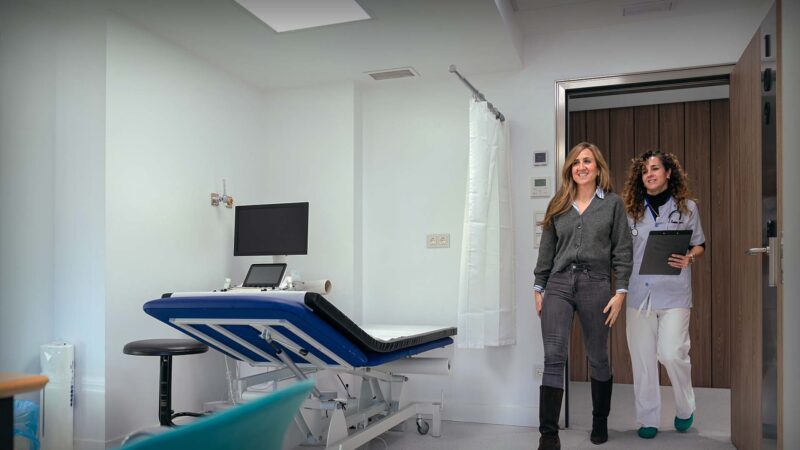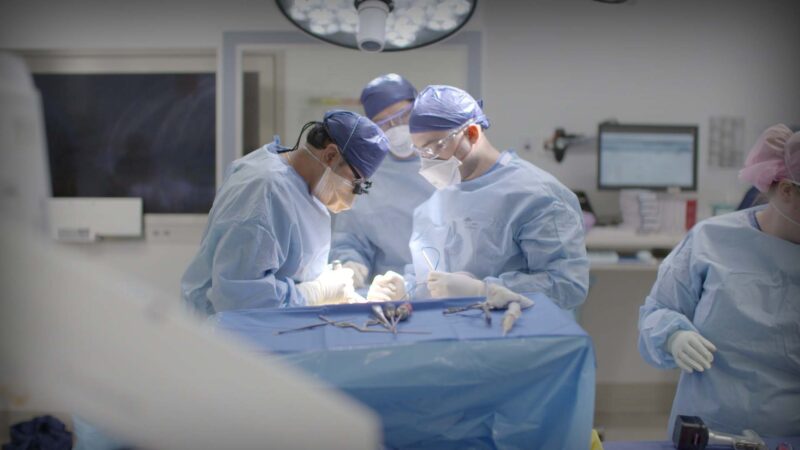MISSION TO RAISE AWARENESS OF SARCOMA AND CLINICAL TRIAL FUNDING Research lagging for sarcoma, despite accounting for one third of adolescent cancer deaths
With
Associate Professor Jeremy Lewin, Medical Oncologist,
Peter MacCallum Cancer Centre & Medical Director,
Victorian Adolescent and Young Adult Cancer Service &
Research & Education Lead – Sarcoma, VCCC Alliance
Dr Vivek Bhadri,
Paediatric and Adolescent Medical Oncologist
Chris O’Brien Lifehouse & Westmead Public Hospital &
Board Director
Australia and New Zealand Sarcoma Association (ANZSA)
AUSTRALIAN HEALTH JOURNAL SEGMENT
Filmed in Sydney & Melbourne | September 2025
Sarcoma, a rare and aggressive cancer, remains the deadliest cancer for children and young adults, accounting for nearly one third (30%) of cancer-related deaths among those aged 15–24 and one tenth (10%) of those aged 0–14. Further, still severely under-diagnosed, sarcoma only accounts for one sixth (15%) of all cancer diagnoses in the 15 – 24 age group, and less than a tenth (8%) among children under 10.
Despite this, public awareness and research funding for sarcoma funding remain critically low, with sarcoma receiving just $4.6m in funding for research in 2018-2020 – compared to the tens of millions other cancers receive. Sarcoma gets only a tiny fraction of funding for research that more common cancers receive, despite having the same costs to conduct studies.
The lack of funding reflects long-term survival rates for sarcoma which remain concerningly low, at just a 50% 10-year survival rate, while five-year survival rates for common cancers such as prostate and breast cancer have increased to over 90% in the past four decades (96% and 92% respectively).
Accounting for just 1% of all adult cancer diagnoses, sarcomas are rare and complex cancers that form in bone, cartilage or soft tissue8. There are over 100 different subtypes of sarcoma, which each require their own diagnostic and treatment pathways, which is why continued research is essential to improving patient outcomes.
Research indicates sarcomas are misdiagnosed in nearly one third (30%) of cases, emphasising the importance of ongoing research to support diagnostic developments, alongside improvements in patient treatment and management pathways.
Source: Australian and New Zealand Sarcoma Association (ANZSA) media release 1 July 2025
You Might also like
-
Australian Primary Health Care Nurses Association Career Federal Budget General Practice New Content Nursing
A New Era in Primary Health Care Nursing
Coinciding with this year’s International Nurses Day, this week’s Federal Budget has had some significant outcomes for the primary health care, nursing workforce.
The Federal Budget delivered on 9th May 2023, APNA believes will strengthen Australia’s primary health care (PHC) system by addressing growing nursing shortages, seeing more nurses hired where they are needed, and better utilising the largest workforce in PHC of nearly 100,000 nurses to their full potential to reduce the pressure on the health system.
-
Changes in MBS bulk billing incentives address GP capacity in women’s health
Dr. Sneha Wadhwani, a General Practitioner in Bondi, and Conjoint Lecturer at UNSW School of Medicine, is actively involved in enhancing women’s health services across Australia. As the Co-founder and Clinical Director of Evoca Women’s Health, she highlights the significant improvements in funding for women’s health, particularly with the new MBS bulk billing incentives, in new codes, that commenced on November 1, 2025.
-
Jack Lancaster, Evolution Surgical
Continuing the Australian Health Journal, People In Health Care series is Jack Lancaster, the CEO of Evolution Surgical, an Australian owned company established in 2014, specialising in spinal fusion implants and custom instrumentation.
Jack talks about how the company works closely with surgeons to design custom solutions manufactured to surgical requirements, and ultimately, to the benefit of the Australia patient.



